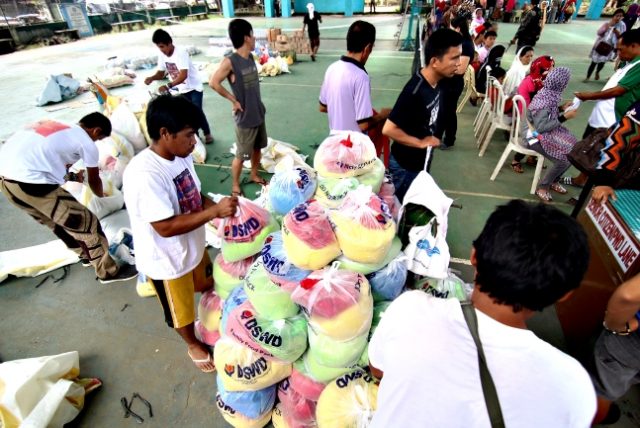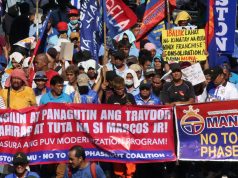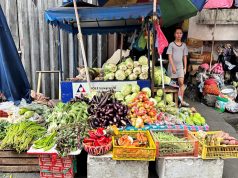CAGAYAN DE ORO CITY – The Department of Social Welfare and Development (DSWD) office in Northern Mindanao on Friday warned recipients of disaster relief assistance that they will be delisted from its list of beneficiaries once it finds out that relief goods are being sold.
Reports have been circulating that some evacuees, internally displaced persons (IDPs) staying in evacuation centers as well as home-based displaced persons are selling goods provided by DSWD.
“We understand that one reason for this is that they are in need of money, but we also have to realize that, based on our guidelines, selling these relief goods is prohibited. These goods should serve their daily consumption needs,” DSWD regional director Nestor Ramos said in a statement.
Ramos said he is also aware of reports that some evacuees are “getting sick” from consuming canned goods given to them, but he assured that this concern is already being addressed.
“We are constantly informing our donors to also donate other varieties of food for our beneficiaries, many of whom are tribal folk, or indigenous people, and so far many of our donors have already sent out alternative items like chicken, dried fish, and beans. We are continuously coordinating with these organizations to send more varieties of food,” he added.
In terms of their monetary need, Ramos said, DSWD has developed the Cash For Work program, which is being implemented in evacuation centers and in home-based areas.
He said DSWD is paying out P200 each day for 10 days to the IDPs in exchange for work rendered, such as cleaning evacuation centers and other areas, and dredging canals, among others.
Also, DSWD is providing transportation allowance for displaced families who want to go back to their homes.
“All they need to do is sign up with our camp managers assigned in the evacuation centers or in home-based areas. And for the free transportation, they can talk with their camp managers to avail of this,” he said.
According to Ramos, DSWD and other government agencies and offices meet on a daily basis to discuss issues and concerns that are being raised especially by the IDPs, so that their needs are addressed, and their complaints heard.
The regional director also urged IDPs to “constantly talk” with their camp managers on their needs, to make sure these concerns reach the right ears and can be addressed expeditiously.
“These camp managers are the ones who are reporting to us what the IDPs need, so it is best that the IDPs talk with them,” he added.










